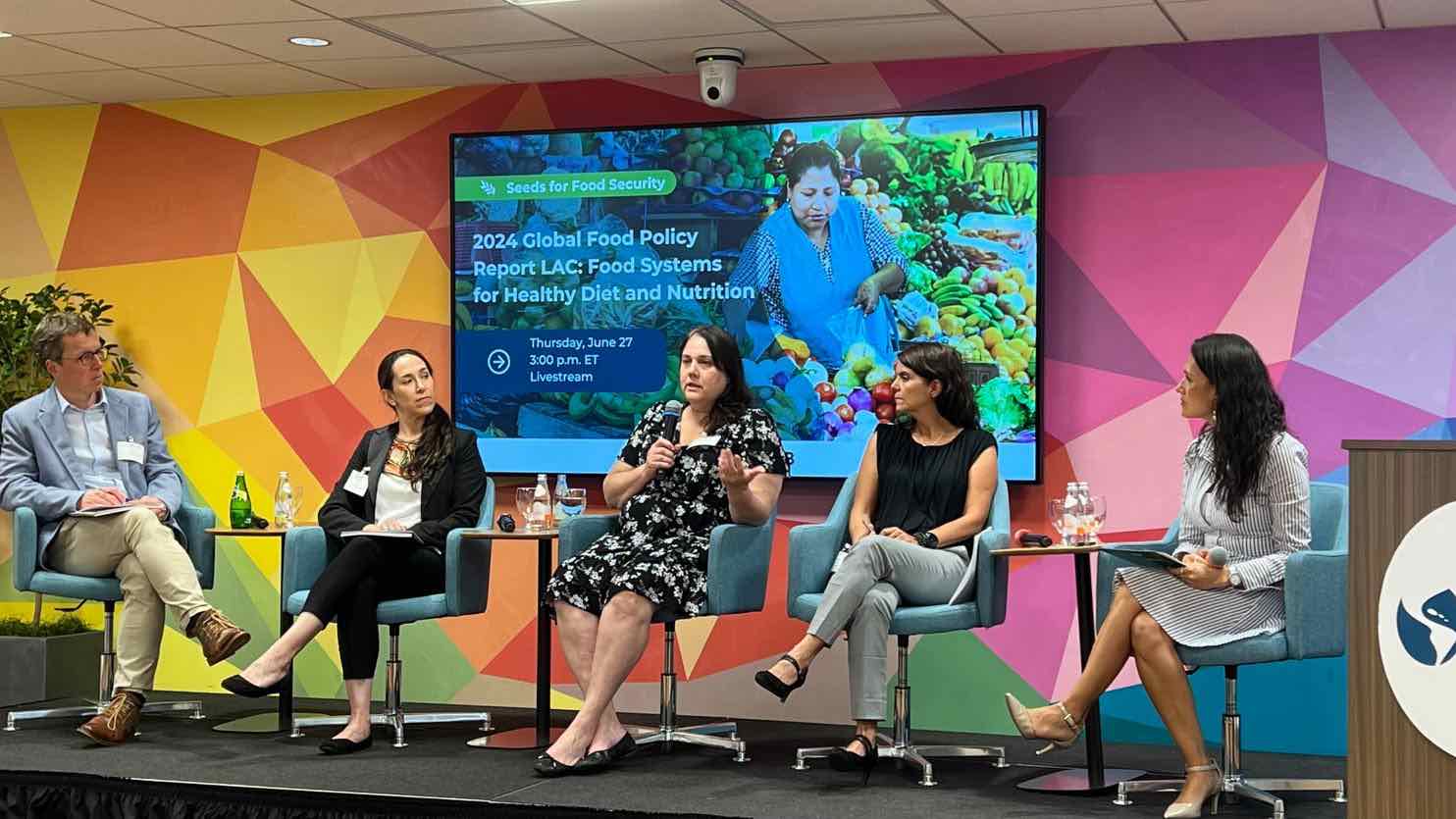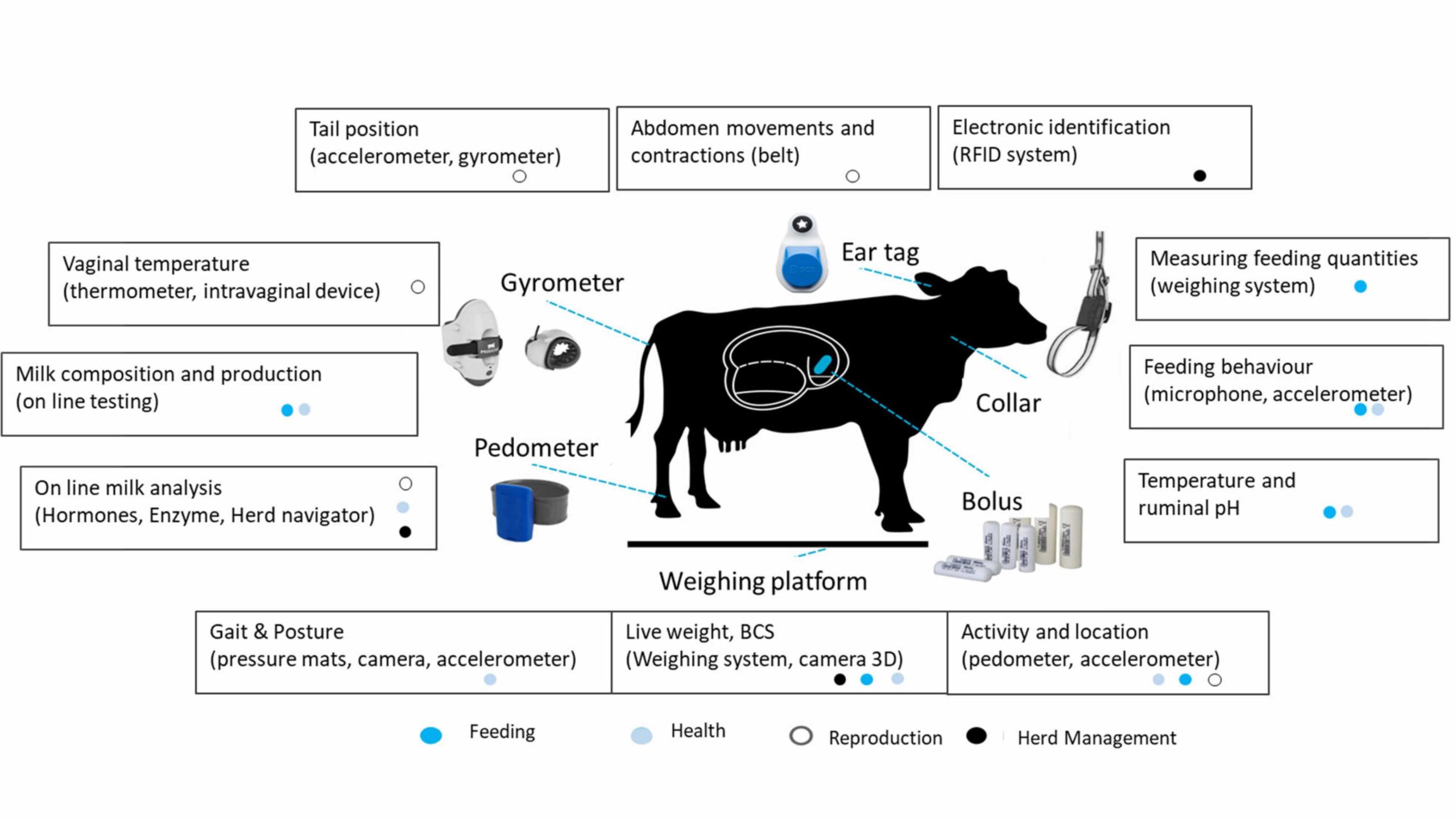Malnutrition stemming from unhealthy diets is a major food systems challenge impacting the health and well-being of people around the world. High food prices, increasing availability of ultra-processed foods, urbanization, climate change, and other trends have contributed to the overconsumption of unhealthy foods while limiting the accessibility of healthy foods. These challenges are prevalent across Latin America and the Caribbean (LAC) where healthy foods are often expensive, high levels of economic and social inequality persist, and dietary changes have led to a rapid increase in overweight and obesity existing alongside other forms of malnutrition.
These issues and possible solutions were the focus of the June 27 Latin America and Caribbean launch of IFPRI’s flagship publication, the 2024 Global Food Policy Report (GFPR): Food Systems for Healthy Diets and Nutrition. The hybrid event was hosted by the Inter-American Development Bank (IDB) at its headquarters in Washington, D.C., and explored key implications of the report for LAC.
Lina Salazar, IDB Lead Economist for Agriculture and Rural Development, opened the session by highlighting the unique dietary challenges facing the region, noting, “Recent data produced by FAO [the UN Food and Agriculture Organization] shows that the region has the highest cost of a healthy diet, which implies that about 22% of the population cannot access this type of diet.”
Deanna Olney, Director of IFPRI’s Nutrition, Diets and Health Unit and 2024 GFPR co-editor, presented report highlights. Approximately one in five deaths globally could be prevented by improved diets, she noted. To address this challenge, the report takes a food systems approach and considers linkages to other global systems, such as public health and the environment, to identify policy strategies for promoting sustainable healthy diets. “There is no silver bullet for addressing nutrition challenges. We need context-relevant actions that are interlinked across food systems and supported by good governance to address existing constraints,” she said.
Jef Leroy, Senior Research Fellow with IFPRI’s Nutrition, Diets, and Health Unit, presented the GFPR chapter on Food Environments. Rural transformation, urbanization, changes in livelihoods, and rapidly growing digital environments have led to the current overabundance of ultra-processed foods, he explained, even in remote areas. The “rich experience of countries in the Americas” in creating policies that address this problem—including mandatory front-of-package warning labeling and taxes on sugar-sweetened beverages—provides lessons for other regions trying to improve diets, Leroy said.
During the discussion, Gabriela Fretes, Associate Research Fellow with IFPRI’s Nutrition, Diets, and Health Unit, noted that in Chile, school programs in health, nutrition, and physical education were supported by restrictions on labeling and marketing of unhealthy foods to children, including limits on selling these foods in schools and required front of package health warnings. As a result, she noted, children became agents of change delivering information to their households and contributing to more healthy food choices in their families. Such efforts to change diets through education and regulation must be sustained over time to be successful, she added.
Valeria Piñeiro, IFPRI Regional Representative of the Latin American and Caribbean Region and Senior Research Coordinator, emphasized the differences across LAC countries, noting that obesity is more common in Argentina, Chile, Mexico, Uruguay, and some Caribbean countries, while undernutrition is more prevalent in Haiti, Venezuela, and several Central American countries. These differences illustrate the importance of solutions catered to the diverse realities of each country, Piñeiro said.
Carolina Trivelli, Principal Researcher with the Peruvian Studies Institute, also emphasized that idea as she discussed ways to address multiple forms of social and economic inequality in LAC countries. Gender inequality, ethnic or racial inequality, and inequalities between urban and rural populations all limit access to healthy diets and pose challenges to effective policy interventions, she said, and addressing nutritional challenges requires culturally sensitive interventions that account for these inequalities.
IFPRI’s Latin America and Caribbean Program works closely with local partners across these diverse subregions and populations to identify solutions for achieving sustainable healthy diets in LAC and globally. Through projects such as the AVANZAR2030 initiative—which systematically reviews existing evidence about innovations for sustainable agrifood systems in LAC through a community of experts from across the region—researchers can develop context-specific insights and guidance for policy makers to support these goals.
Brian McNamara is a Program Manager with IFPRI’s Markets, Trade, and Institutions Unit.







